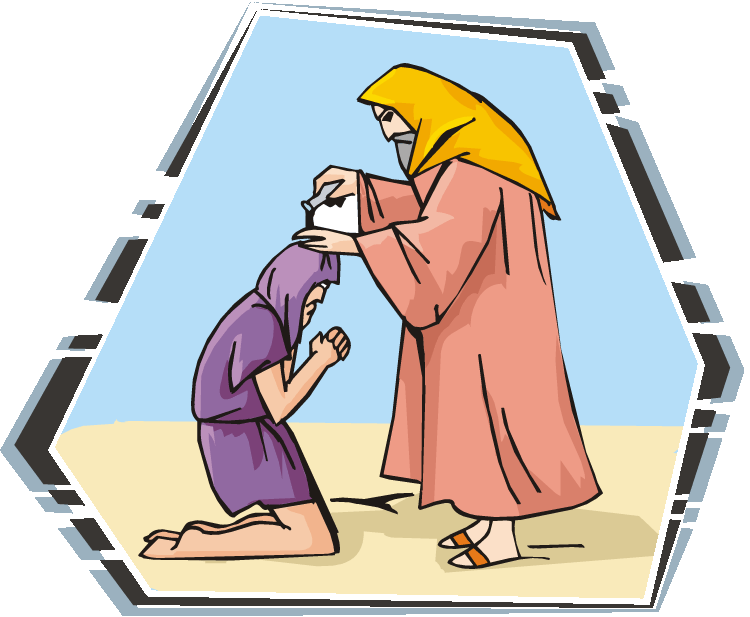 Exodus 28:41, Anoint them. Ordination is a religious ritual that YHVH instituted in the Torah when he charged Moses to lay hands upon Aaron and his sons as part of the process of consecrating them to the priesthood (Exod 28:41; 29:7; 30:30).
Exodus 28:41, Anoint them. Ordination is a religious ritual that YHVH instituted in the Torah when he charged Moses to lay hands upon Aaron and his sons as part of the process of consecrating them to the priesthood (Exod 28:41; 29:7; 30:30).
YHVH then instructed the Israelites themselves to lay hands on the Levites as part of the process of consecrating them to the Levitical service (Num 8:10). In addition, the kings of Israel were also anointed with oil (although hands were not imposed on them) to consecrate them for their kingly duties (e.g. 1 Sam 10:1; 16:13; 1 Kgs 1:39).
The laying on of hands or ordination is nothing more than earth’s confirmation of a heavenly calling. The biblical record clearly shows us that when ordinations occurred, Elohim had already chosen someone for that ministry position (e.g. high priest and his sons, the Levites, the king of Israel, or spiritual leaders in the time of the apostles), and men were simply confirming—through the anointing of oil and/or the laying on of hands—a choice that Elohim had already made. The heavenly calling comes first followed by the ordination of men. Heaven chooses who the servants of Elohim will be. Men, organizations, denominations, or churches do not.
In the Testimony of Yeshua, the eleven apostles chose Matthias to replace Judas by lot (Acts 1:15–26). The apostles believed that YHVH would supernaturally direct how the lots would fall, and thus the choice would be heaven’s, not of men. In the case of Matthias, there is no mention of laying on of hands or anointing with oil. This seems to follow the example of Yeshua who simply called and commissioned the original twelve disciples (Matt 10:1; Mark 3:13; Luke 6:13). After all, Yeshua didn’t need a ceremony to confirm his choices, since he was heaven’s voice on earth.
After that, we have the choosing by the people of the seven deacons in Acts 6:1. These men were already full of the Set-Apart Spirit and wisdom, so the apostles simply confirmed the work of the Spirit and the choices of the people through the laying hands (verse 6).
The same is true in the other examples of ordination in the Testimony of Yeshua. Men would be mentored by a leader or an apostle, and after a period of time (“lay hands on no one suddenly,” 2 Tim 5:22), and after meeting the qualifications of eldership (see 1 Tim 3:1–12 and Tit 1:5–9), they were ordained. This period of training and probation finds its precedence in the Torah, where each Levite went through five years of training (from age 25 to 30, Num 8:24) before being allowed to help the priests in the temple service. The biblical example of mentoring for ministry was less of an authoritatively-hierarchical system and more of patriarchal and apprenticeship-type system with the older men lovingly overseeing, teaching and guiding those they were raising up for the ministry.
Were the modern mainstream church system as well as the Hebraic Roots Movement to follow this biblical system more strictly of training, raising up and appointing new leaders, the quality of leadership and hence the whole church itself would improve.
Instead, too many leaders are either self-appointed, ill- or un-trained, lack the oversight of older and more experienced leaders to mentor them, or simply because they have some formal, academic biblical training they assume that this automatically qualifies them for congregational leadership. In many cases, nothing could be further from the truth, and this is evidenced by the great number of spiritual weak and sick, carnal and worldly churches that exist today. This is largely due to the poor quality and the unbiblical nature of spiritual leadership.


He said “Follow Me.!” If only we would 🙂